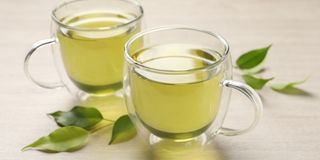High doses of green tea and other supplements can damage Liver, experts caution

High doses of green tea and other supplements can damage Liver, experts caution.
What you need to know:
- Consumers who take them say they do it for their joint health and arthritis, to boost energy levels, weight loss, manage hot flushes and for heart health.
- However, a new study published by JAMA Network reveals that indulgence in popular botanical supplements like turmeric and green tea could be damaging your liver.
For many individuals, the day doesn’t truly begin until they have had their morning cup of green tea. Others prefer to sip it throughout the day. Meanwhile, turmeric enthusiasts turn to their golden brew or blend within another drink. Another quarter opts for Garcinia cambogia, black cohosh, or red yeast rice.
Consumers who take them say they do it for their joint health and arthritis, to boost energy levels, weight loss, manage hot flushes and for heart health. However, a new study published by JAMA Network reveals that indulgence in popular botanical supplements like turmeric and green tea could be damaging your liver, particularly when taken in high doses.
The study highlighted that despite their widespread use for health benefits, the lack of robust evidence supporting their safety could be a risk, urging consumers to reconsider their intake. A team of health researchers who analysed data between 2017 and 2022, found that most supplements are taken without a doctor’s prescription.
“We analysed nationally representative data from 9, 685 adults, and 4.7 per cent of US adults reported exposure to six potentially hepatotoxic botanicals: turmeric was most frequently reported, followed by green tea, ashwagandha, Garcinia cambogia, red yeast rice, and black cohosh products,” the researchers said.
They highlight in the study that the use of herbal and dietary supplements (HDSs) accounts for an increasing proportion of drug hepatotoxicity cases, adding that their investigation was triggered by increasing cases of hospitalisations in the US related to the misuse of herbal supplements.
Drug-induced hepatotoxicity is an acute or chronic liver injury also known as toxic liver disease, with a host of symptoms including yellowing of the skin, fatigue, nausea, rash, itching and upper-right abdominal pain. They also point out that the regulatory processes surrounding these supplements are less stringent than for prescription medicines, and that chemical testing of products has revealed inconsistencies between what's advertised on the bottle and what dose is in a tablet.
The World Health Organization (WHO) Global Report on traditional and complementary medicine aligns with these findings, highlighting that traditional and complementary medicine serves as a vital, though often underestimated, health resource in the prevention and management of lifestyle-related chronic diseases, and in meeting the health needs of ageing populations.



